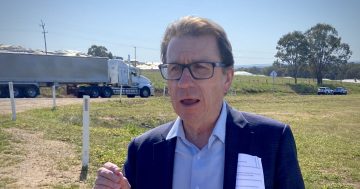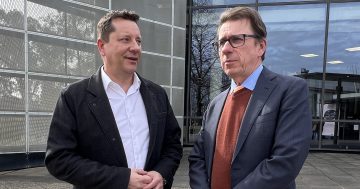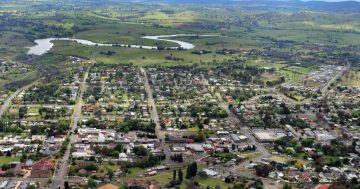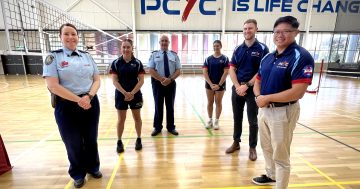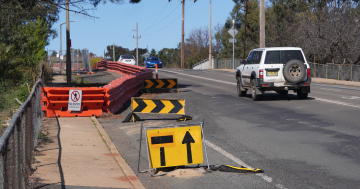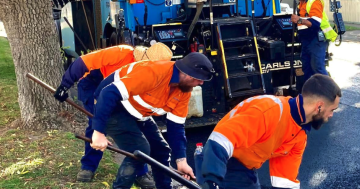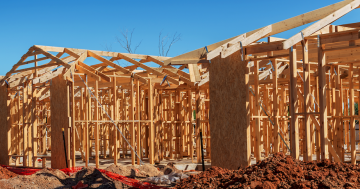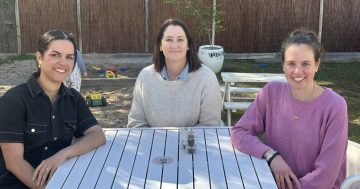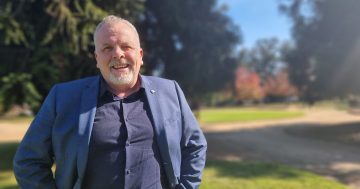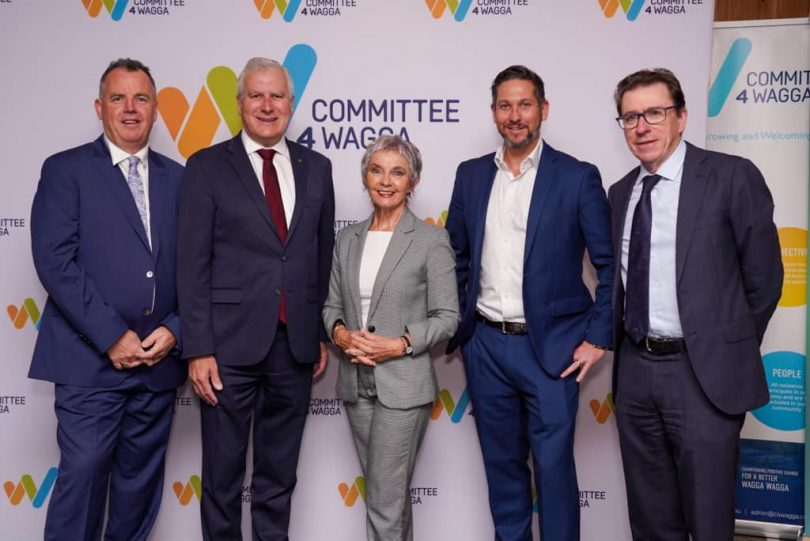
(Left to right) Mayor Dallas Tout, Member for Riverina Michael McCormack, Committee4Wagga patron Kay Hull, chairman Adam Drummond and Wagga MP Dr Joe McGirr at the Wagga Business Summit. Photo: C4W.
Wagga’s future is bright with a wealth of opportunities, but there are challenges that must be faced on the path to success.
This was the overwhelmingly optimistic outlook from business leaders, government and educators who gathered to seek solutions at the Committee4Wagga’s inaugural business summit on Thursday (28 April).
Panelists included representatives from the Commonwealth Bank, Transgrid, Business NSW, Laing O’Rourke, Charles Sturt University and TAFE NSW.
Discussions centred around housing stress, skills shortages and labour resources, described by several speakers as “a wicked problem”, but one that must be solved.
Committee4Wagga patron and former MP Kay Hull said regional Australia is our national backbone, accounting for 40 per cent of our total economic output and aiming to create $100 billion worth of exports in the near future.
“We deserve recognition and respect,” she said.
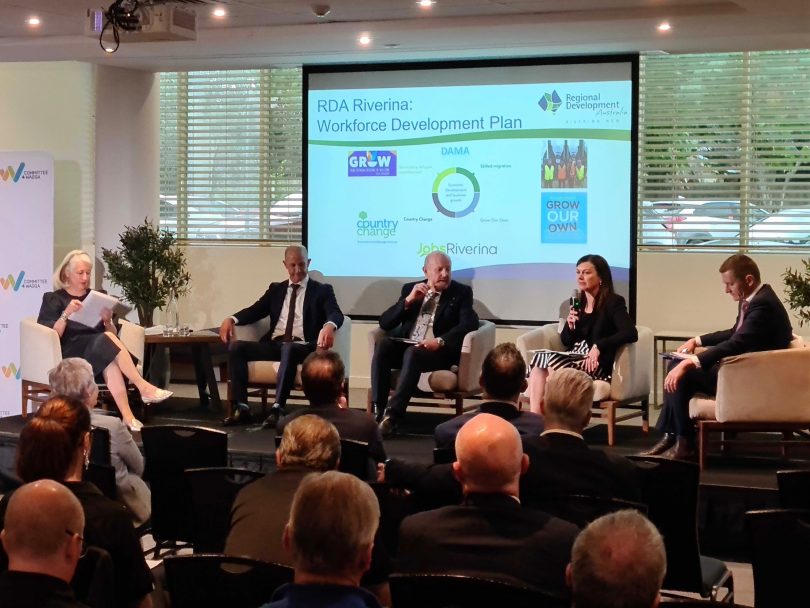
Panelists discuss the opportunities and challenges of Wagga’s economic boom. Photo: Region Media.
The Stable Group managing director Jillian Kilby was involved in discussions around infrastructure and said regional areas need to band together.
“I was very impressed with how many people arrived from the surrounding regions, not just Wagga, because the solutions to infrastructure challenges in the Riverina area affect every local government area,” she said.
Local leaders from all three levels of government were on-hand for the event and Wagga MP Dr Joe McGirr said he was pleased to see the conversation shifting away from rural decline.
“We’re now talking about rural growth. We’re talking about incredible optimism. But as a result, we are facing challenges we’ve never faced before; labour supply and housing shortages,” he said.
Federal Member for the Riverina Michael McCormack took time out from election duties to address the forum.
“It’s good to actually talk about these [issues] with captains of industry, with key stakeholders, with government officials and people who actually administer these programs,” he said.
“There’s an infrastructure boom at the moment in Wagga. There’s $960 million dollars going into the defence spaces, a new PCYC, Inland Rail, there’s so much happening in this city and region at the moment. But again, it comes back to finding the workers to fill those roles.”
He’s hopeful that the reopening of international borders and the agricultural visa program will begin to ease the problem.
“There are 84,000 vacancies in regional Australia. But as more planes start to arrive from overseas, they’re going to bring workers,” he said.
Mayor Dallas Tout said the region was at a critical juncture.
“It’s a good problem to have, but we haven’t got the luxury of not succeeding with it,” he said.
“We need to be getting the runs on the board to achieve what we need to with what’s coming down the pipe at us.”
The event was co-chaired by veteran broadcaster and Region Media group editor Genevieve Jacobs who summed up the discussions in five points.
Firstly, speakers had identified the need for better dovetailing from school to vocational training and concluded that training could be provided by employers so long as the quality was assured and provision was flexible.
They floated the development of a larger regional vision that valued Wagga’s strengths but saw the whole Riverina as a resource and asked what infrastructure would best serve those needs.
They recommended shoring up industries that made the most of Wagga’s specific assets such as the renewable energy boom, which created economical and reliable energy for the future.
Panelists concluded that Government must be willing to find innovative levers to assist with housing and skills shortages and cited the lengthy and confusing skilled migration process as one barrier.
Lastly, they recommended collaboration and coordination to ensure regional centres didn’t sit in silos. Instead, they should form unexpected alliances that spark energy and ideas, and progress them.
Comittee4Wagga chairman Adam Drummond said the next step was connecting the dots.
“What was identified is the challenge in collaboration and communicating these positive outcomes from these individual organisations into a holistic approach to solve some of these fundamental problems around the growing pains of a population growth in a centre such as Wagga,” he said.
“The Committee4Wagga is determined to turn these talking points into action points and form a number of brains trusts, think tanks and task forces that can lead towards a positive change for the community by linking some of these businesses, government agencies and organisations.”
Original Article published by Chris Roe on About Regional.







